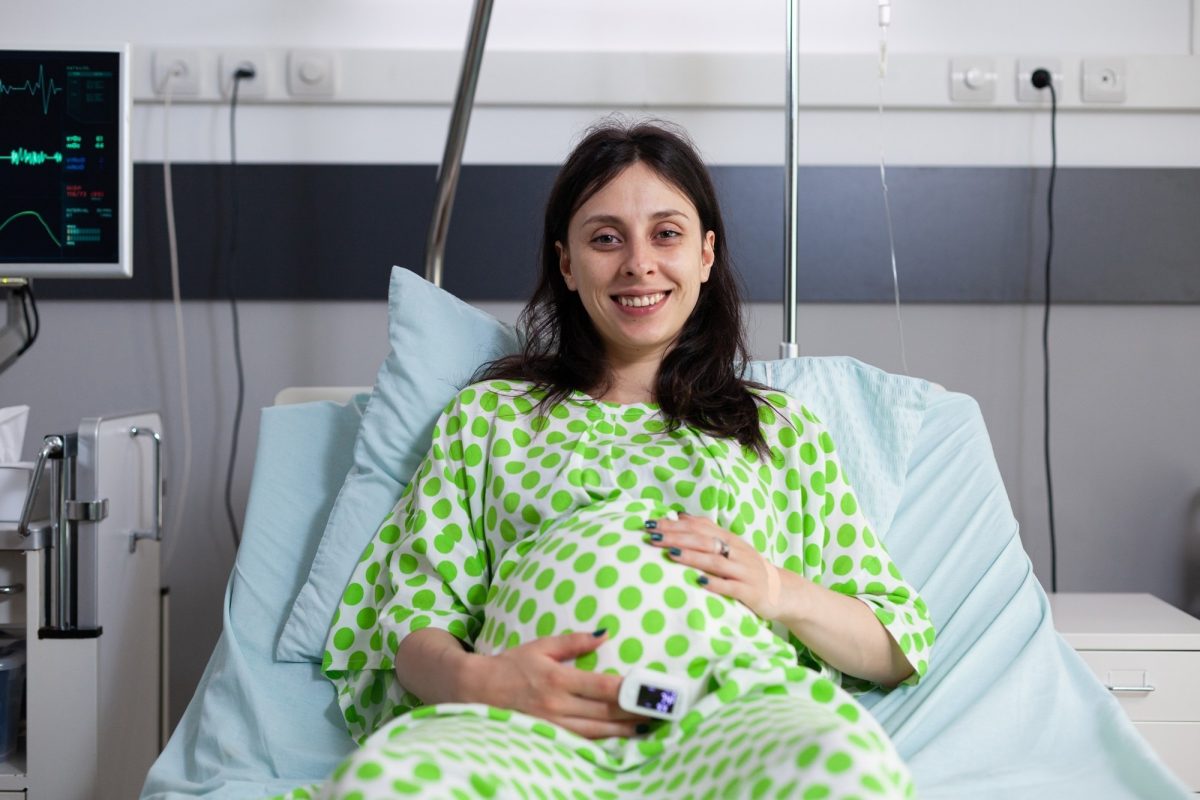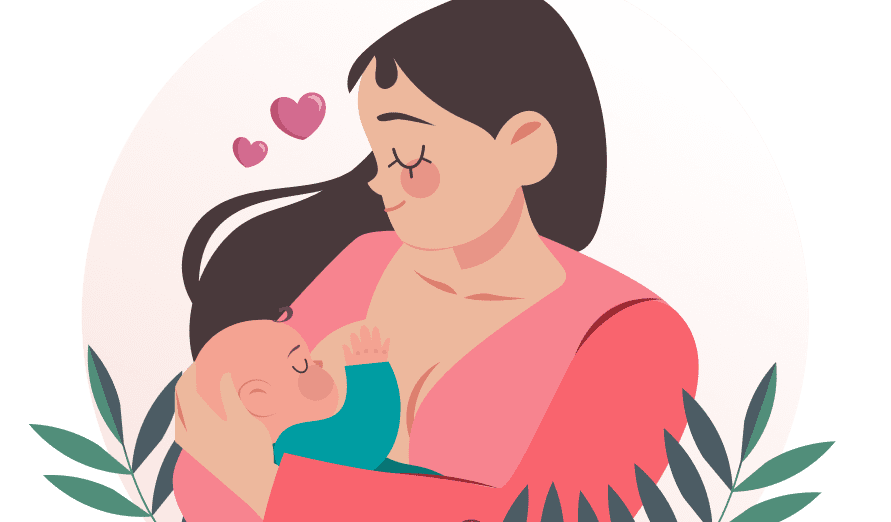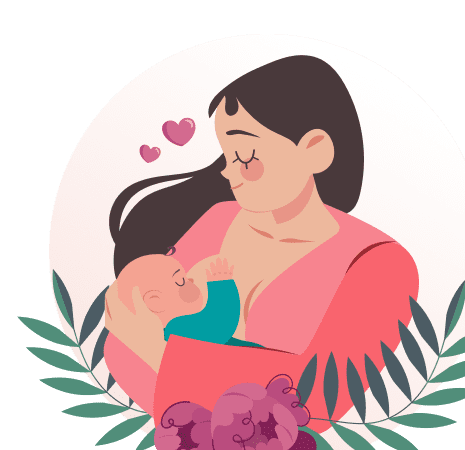Congratulations, mama! After months of anticipation and preparation, you have finally welcomed your little one into the world. While this is an exciting time filled with new joys and experiences, it can also be overwhelming as you navigate your postpartum recovery. From physical healing to emotional adjustments, there are many factors to consider as you heal after birth. In this blog post, we’ll share some helpful tips and insights to help guide you through this transformative period and support your overall well-being in the weeks and months ahead. Let’s dive in!
Read more: Postnatal Care Guide for New Mothers
What is Postpartum Recovery?
After you have a baby, your body is going through some big changes. You are healing from the inside out and need time to recover. Here are some tips for navigating your postpartum recovery:
1. Give yourself time to heal: This is not the time to be a superwoman. Your body needs time to recover from childbirth so give yourself at least 6-8 weeks before you try to do too much.
2. Rest when you can: When the baby is sleeping, use that time to rest too. Try to get at least 6-8 hours of sleep each night if possible.
3. Eat healthily: Fuel your body with nutritious foods so you have the energy you need to take care of yourself and your baby.
4. Take care of your perineal area: After a vaginal delivery, you will have stitches or tears that need to heal. Keep the area clean and dry by using peri-care wipes after every trip to the bathroom and avoid constipation by eating plenty of fiber-rich foods and drinking lots of water. If you had a cesarean delivery, you will have incisions that need to heal as well so follow your doctor’s instructions on how to care for them.
5. Bond with your baby: Take the time to bond with your new little one – skin-to-skin contact is great for both of you!
Read more: Breastfeeding Tips for New Moms

Physical Changes During Postpartum
It’s no secret that giving birth takes a toll on your body. From the physical demands of labor to the emotional roller coaster of the postpartum period, your body is going through a lot! Here are some common physical changes you may experience during postpartum and some tips for dealing with them:
-Your uterus will contract and shrink back down to its pre-pregnancy size over the course of several weeks. This process, called involution, can cause cramping and discomfort. Taking it easy and staying hydrated can help.
-You may have vaginal discharge for up to six weeks after childbirth. This discharge, called lochia, is typically heavy at first but will taper off over time. Wearing pads or panty liners can help keep you comfortable.
-Hemorrhoids are common during pregnancy and postpartum. They are caused by the increased pressure on your veins in the pelvic region. To ease discomfort, try sitting on a pillow or using a hemorrhoid cream.
-Your hair may fall out in clumps for up to three months after childbirth. This is normal and temporary! Try not to worry too much about it and give your hair some extra TLC with gentle shampooing and conditioning.
Read more: 5 Common Postpartum Complications Every New Mom Should Know About
Tips for Physical Recovery
1. Get enough rest: This is easier said than done when you have a new baby, but it’s important to try to get as much sleep as possible. Take advantage of any help you can get and nap when your baby naps.
2. Eat healthily: Eating nutritious foods will help your body heal and give you the energy you need to take care of your baby.
3. Drink plenty of fluids: Drinking lots of water, juice, and herbal tea will help keep you hydrated and promote healing.
4. Take a sitz bath: Sitting in a warm tub can help soothe soreness and speed up healing.
5. Use perineal cold packs: Applying cold packs to your perineum (the area between your vagina and anus) can help reduce swelling and pain.
6. Avoid constipation: Straining during bowel movements can aggravate hemorrhoids or stitches. To avoid constipation, eat plenty of high-fiber foods and drink lots of fluids. If needed, take a stool softener as directed by your healthcare provider.
Read more: Postnatal Weight Loss: Easy and Simple Tips
Mental Health After Birth
Having a baby is an amazing, but also very challenging, time in a woman’s life. Your body is going through immense changes and you are dealing with the new reality of being a parent. It is common for women to experience some mental health difficulties after birth, such as anxiety, depression, or post-traumatic stress disorder (PTSD).
If you are struggling with your mental health after birth, it is important to seek help. Talk to your doctor or midwife about how you are feeling. They can provide support and refer you to other resources if necessary. There are also many online and phone support services available.
Here are some tips for taking care of your mental health after birth:
1. Get plenty of rest: This can be difficult with a new baby, but it is important to try and get as much sleep as possible. If possible, take turns sleeping with your partner so that you can both get some rest.
2. Eat healthily: Eating nutritious food will help your body recover from childbirth and give you the energy you need to care for your baby.
3. Exercise: Exercise releases endorphins which can help improve your mood. Taking a brisk walk or doing some light yoga or stretching may help you feel better mentally and physically.
4. Connect with other moms: Talking to other mothers who have been through the postpartum period can be very helpful. They understand what you are going through and can
Coping Strategies for Emotional Well-being
It’s no secret that the postpartum period can be tough. From adjusting to life with a new baby to dealing with hormonal changes, many new mothers find themselves struggling to cope. If you’re feeling overwhelmed, know that you’re not alone. Here are some coping strategies for emotional well-being during the postpartum period:
1. Give yourself time to adjust: It takes time to adjust to parenthood and there is no right or wrong way to do it. Give yourself permission to take things one day at a time and don’t be hard on yourself if things aren’t going perfectly.
2. Seek support: Whether it’s talking to a friend, family member, or professional, seeking support can be incredibly helpful during the postpartum period. Talking about how you’re feeling can help you work through difficult emotions and start to feel better.
3. Take care of yourself: Be sure to schedule some time for self-care. This may include exercise, relaxation techniques like yoga or meditation, or simply taking some time for yourself each day. Taking care of yourself will help you feel better physically and emotionally and will make it easier to cope with the challenges of parenthood.
Conclusion
Navigating postpartum recovery is no easy feat, but it’s important to remember that you can do it. Following the tips outlined in this article will help you heal physically and emotionally after giving birth. It’s also essential to take care of yourself by eating nutritious meals, resting when possible, seeking medical advice if needed, and practicing self-care activities like yoga or massage. With a little bit of patience and support from family and friends, you can make your journey through postpartum recovery a positive one.

















Share this article